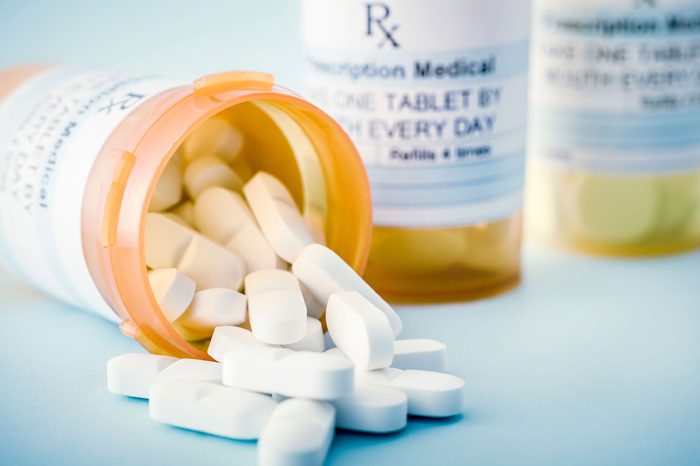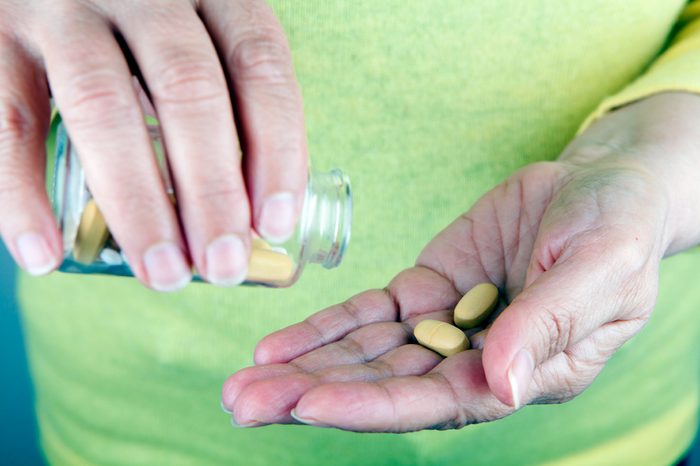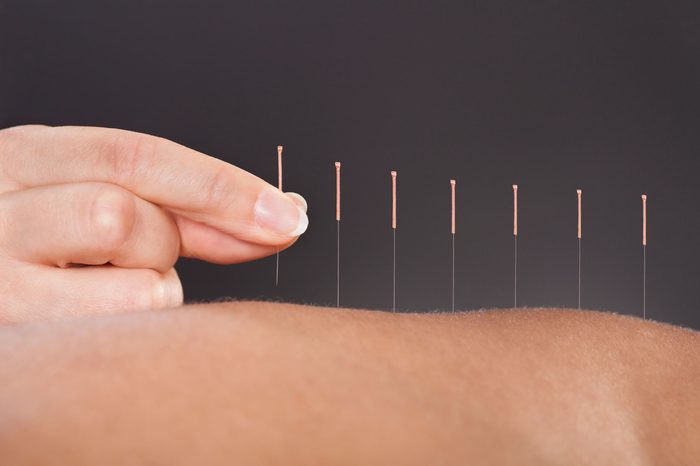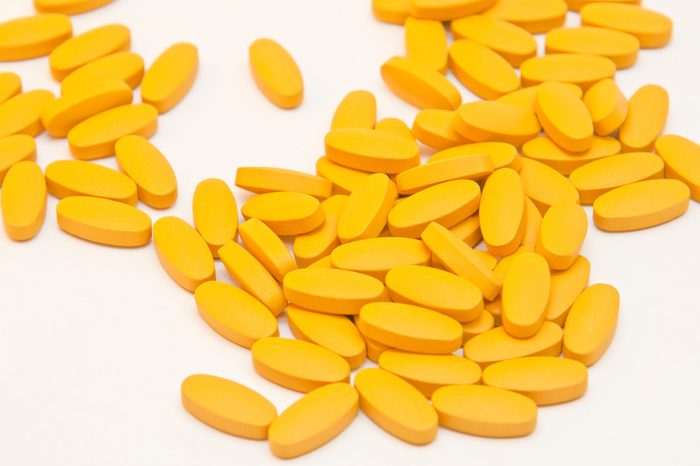Worth asking your doctor about: Adjusting your diet
While high-fat diets are trendy right now, the opposite might be best for migraine sufferers. In a 2015 study published in the journal of Nutrition, Metabolism, and Cardiovascular Diseases, participants followed a low-fat diet (where less than 20 percent of their calories came from fat each day and they limited saturated fat) for 12 weeks. At the end, the low-fat group experienced fewer and less severe episodes compared to those on a typical fat diet. If you find that certain foods trigger migraines for you, ask your doctor if an elimination diet could help, suggests a 2016 study in Headache: The Journal of Headache and Pain.

Works for many: Magnesium, Butterbur, Vitamin B2
Magnesium: Should you want to start supplementing, think about a magnesium supplement. It tends to be the easiest one to find in stores, recommends Susan Rubin, MD, a neurologist at NorthShore University HealthSystem in Glenview, Illinois. Take 400 mg daily; more can cause diarrhea.
Vitamin B2: Aka riboflavin. There’s some good data on B2’s efficacy against migraines, says Dr. Rubin. Just be sure to watch the dosage on the bottle: Many available in drugstores sell supplements that contain 50 to 100 mg, and taking 4 to 8 may be a challenge. She recommends buying these online (from a reputable company) to find the larger dose.
Butterbur: This is one supplement (which comes from a shrub) that Sait Ashina, MD, a migraine specialist at Beth Israel Deaconess Medical Center in Brookline, Massachusetts, says helps some patients. As the National Center for Complementary and Integrative Health points out, both the American Academy of Neurology and the American Headache Society endorses butterbur for migraines. The recommended dose is 75 mg twice a day. But keep in mind there isn’t long-term safety data on this supplement.
Feverfew: Some people like taking feverfew. “There’s not particularly good research on this, and it’s more anecdotal,” says Dr. Rubin. (You’re better off trying B2, magnesium, and butterbur first.)
Melatonin: A 2019 review in Medicine suggests that taking melatonin (a hormone that helps regulate your sleep-wake cycle) may help prevent migraine attacks. Check out these 10 other natural headache remedies worth trying.

Works for mild migraines: OTC pain relievers
For mild migraine attacks, over-the-counter medications, like NSAIDs (e.g. ibuprofen) or combination pain-relievers (e.g. Excedrin, which contains acetaminophen, aspirin, and caffeine) might bring down your head pain. “If you have severe migraines, they’re less likely to work,” says Dr. Rubin. In fact, for most migraines, you’ll need something stronger, like prescription drugs for acute attacks or preventatives.

Works for severe migraines: Prescription drugs
One family of drugs, called triptans, can be taken to stop a migraine in its tracks. These prescription drugs are often the first-line therapy for migraine sufferers, but many people try to actively avoid them or take them as a last resort. “Patients will take ibuprofen for a migraine and then will take more ibuprofen a couple of hours later. Then, they’ll take their triptan. What we advise is taking the medication that’s most likely to be successful first,” says Dr. Rubin. If you can’t say that an OTC works for your headache at least half the time, take the triptans at the beginning of an attack.

Works for frequent migraines: Migraine-prevention drugs
If you get more than one migraine per month, you may be a candidate for migraine prevention drugs, which include blood pressure meds (beta-blockers and calcium-channel blockers), antidepressants, and anti-seizure meds. These are not taken to stop an attack, but daily to prevent them from occurring, according to the American Migraine Foundation. Within four weeks of usage, they can cut your migraine-frequency down. Studies show 90 percent of people who take beta-blockers propranolol (Inderal) and timolol (Blocadren) get relief.

Works for nearly everyone: avoiding medication overuse
Migraine remedies don’t automatically mean more painkillers. Although it sounds counter-intuitive, don’t overdo your use of painkillers, or you could end up worse off. Using OTC meds like NSAIDs or aspirin more than three times weekly or triptans more than twice a week can lead to “rebound headaches,” according to the Cleveland Clinic. This is when you get a withdrawal headache from coming down from the meds; in response you may pop more, creating a chronic headache cycle. These are the 8 different types of headaches—and how to get rid of them.

Works for some: Acupuncture and hypnotherapy
A review of 22 clinical trials in the Cochrane Database of Systematic Reviews in 2016 concluded there’s evidence acupuncture could help migraines. The research shows headache frequency dropped by 50 percent or more in up to 59 percent of individuals receiving acupuncture. Plus, this effect can persist for more than six months. If you’re looking for another alternative treatment, Dr. Ashina says some people find hypnotherapy to be effective in quelling their pain. You can also try CBD hemp oils or CBD tinctures as alternative treatments.

Don’t bother: Waiting it out
It’s tempting to want to take a “wait and see” approach, especially if you don’t want to take medication. However, “once a headache becomes entrenched, it becomes more intractable, or less likely to respond to medication at all,” says Dr. Rubin. Translation: You have a window of time as a migraine approaches to take measures to stop it, miss that and meds won’t even work as well. “Try to catch a headache as early as possible,” she says. A headache is something to pay attention to, as are these 50 other health symptoms you should never ignore.
